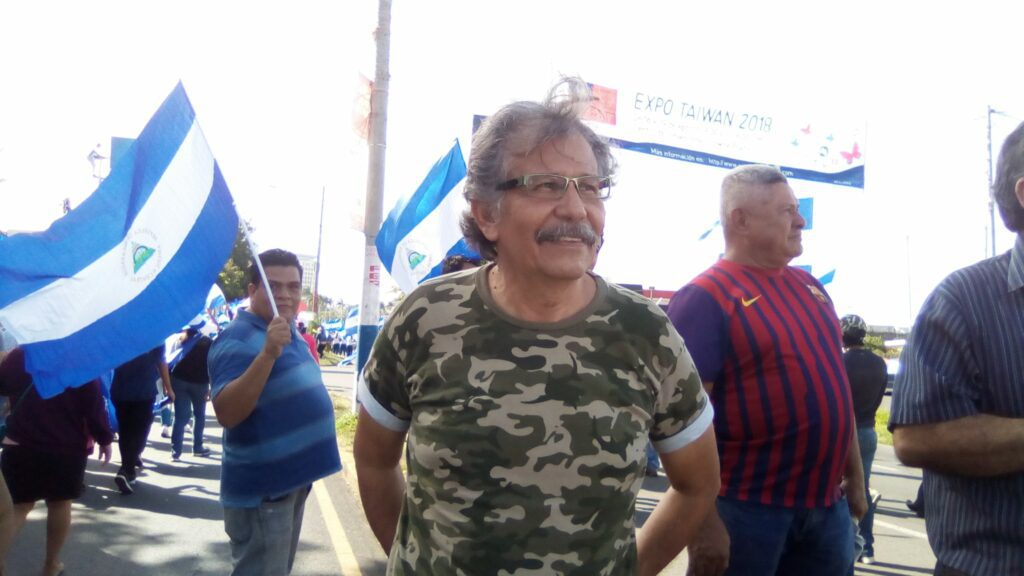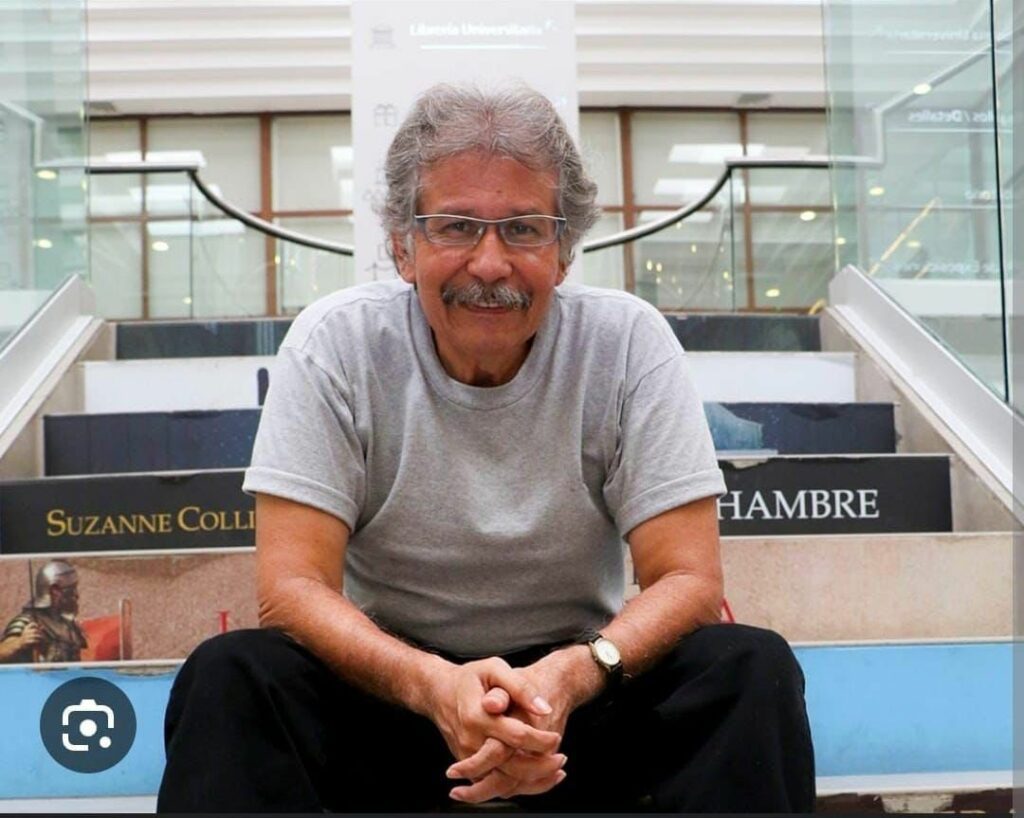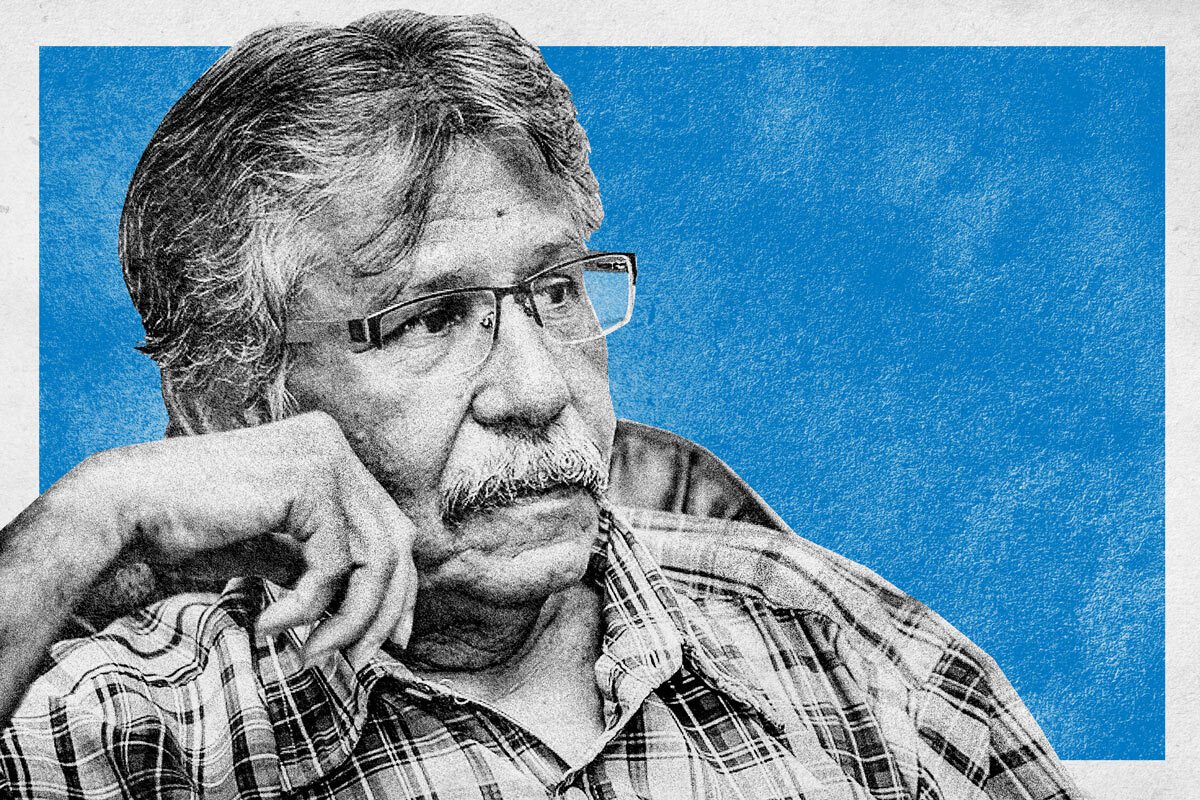From his capture on November 29, 2023 until his trial this January 24, the entire political process against former university professor Freddy Quezada has been arbitrary and legally absurd, like the dictatorship of Daniel Ortega and Rosario Murillo that he never ceased to denounce in his social media, which is why he is now a political prisoner.
The philosopher was taken out of his cell -which his family intuits is in the penitentiary La Modelo, because his whereabouts have never been specified by the authorities- and they put him in front of a computer. On the other side of the screen, in a video call, a pro-Ortega judge read to him the charge of “incitement of hatred”. He was found guilty in a single session.
Professor Quezada did not have a defense attorney to really defend him, because he was assigned a public defender, that is to say, one appointed by the same Judicial Power that condemned him. The public defender informed his family that the accused “admitted he was guilty”.
Something that Adriana Quezada, daughter of the philosopher and sociologist, finds hard to believe. “That’s what the lawyer says, but in our opinion, if my father took the blame it is because he must be desperate because of the conditions in which he must be,” says Adriana, who lives in Panama.
Recibe nuestro boletín semanal
The former professor was arrested one day after he criticized the regime on a social media post that showed Bishop Rolando Álvarez, a political prisoner banished to Rome along with 18 other Catholic religious on January 14, in La Modelo.
The forced disappearance of professor Freddy Quezada
Since his capture, made by both civilians and police at his home in Managua, Professor Quezada has been technically in “forced disappearance by hiding of whereabouts”, according to the Legal Defense Unit (UDJ).
Neither the National Police, the Ministry of the Interior, nor the Public Defender’s Office have told Professor Quezada’s family where he is being held. 86 days of forced disappearance, as of the publication of this article. Much less have they authorized visits to the family. They have not been able to see him.
The philosopher’s wife, that is, Adriana’s mother, has repeatedly asked these regime institutions about his whereabouts and requested access to a visit, but she has received no response. She faces a wall of indifference, of “anxiety”, which for the UDJ constitutes another type of torture for the loved ones of political prisoners.
“My mother was not even allowed to pass from the gate of La Modelo, nor was she allowed to join the trial via Zoom. We suspect that my father is being held in La Modelo, because the public defender told us that he is being held in the ‘penitentiary’. All these months have been of comings and goings, of not knowing anything… It worries us a lot because he is a diabetic. Although he is not a diabetic dependent on insulin yet, he controls his sugar with a rigorous diet. Being in this situation, we don’t think he is going to receive adequate care,” says Adriana.
No case number

The anxiety of Professor Quezada’s family extends beyond his state of health. Neither the court-appointed lawyer nor the judicial authorities have provided them with a case number to be able to change the political prisoner’s defense.
“There is no case number, and my mom met with the lawyer, and he told her that he doesn’t even know or has seen my dad… all the information is very general, very vague. We only know that in a month or more, they will read his sentence,” says Adriana.
The case of professor Quezada fully illustrates the new repressive patterns of the Ortega-Murillo regime against the more than 120 political prisoners it keeps captive.
“During the last six months, we have identified the following repressive patterns in arbitrary detentions perpetrated by the State of Nicaragua: illegal searches, forced disappearances against people considered opponents or critics of state party politics. Also, conducting trials through video calls, coordinated actions between the Penitentiary System and police in interrogations, even the critical prison conditions that include plagues of sandflies,” summarizes the UDJ.
The uncertain situation of Professor Quezada prompted the Inter-American Commission on Human Rights (CIDH) to issue on December 27, 2023, “Resolution 82/2023,” granting him precautionary measures, “considering that he is in a situation of urgency of the risk of irreparable harm to his rights in Nicaragua.”
Professor Freddy Quezada: “anarchist, insurgent, and disappointed”
Freddy Quezada, before being a philosopher and sociologist, was described by those close to him as an “anarchist, insurgent, critic, and disappointed of injustices.”
Ethical principles have led him to prison several times in his life, as a political prisoner: first, Somoza’s National Guard arrested him many times for being a student leader at UNAN-Managua when he participated in the Christmas Without Political Prisoners campaigns in the seventies. In 1979, when he was released by the National Guard, he came out with the phalanx of the toes on his right foot destroyed.
Then in the eighties: despite being a Sandinista, he soon criticized the commanders of the Sandinista Revolution. He considered himself a radical Marxist, almost an anarchist. In 2018, he was dismissed as a professor at UNAN-Managua for his firm stances against repression and the Ortega-Murillo dictatorial couple. He used social media, especially his X account (formerly Twitter), to sarcastically criticize the current regime. Viral tweets that came from the account El Uliteo.
Not having a book: the worst torture against Professor Quezada

One of his last posts said, “The dictatorship had 222 people imprisoned, whom it was later forced to release and expatriate. All have recounted their experiences and the things they suffered. How does that fox-headed dictatorship now think that anyone will believe the ‘mise à scene’ of Bishop Rolando Álvarez?” Tweets he wrote from his home in Managua, despite Ortega-Murillo’s unrestrained repression.
Two dictatorships have harassed and imprisoned him, but they have not broken his desire for freedom.
Now, he is a 65-year-old philosopher who doesn’t know how to stay silent, stop questioning, or stop informing himself. That’s why he’s a political prisoner, and his daughter, knowing that, is worried that Professor Freddy Quezada has no access to a book in his cell.
“This is the upside down world because people who do commit real crimes, that is, common prisoners, do have all those benefits. Their families know where they are. But my dad, who has been a professor all his life and now a political prisoner, is not allowed anything. Not even a book, and that, I’m sure, is what hurts my dad the most… because he has always had a book by his side to read, as he is a philosopher, a professor, a reader,” says Adriana from Panama.

